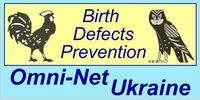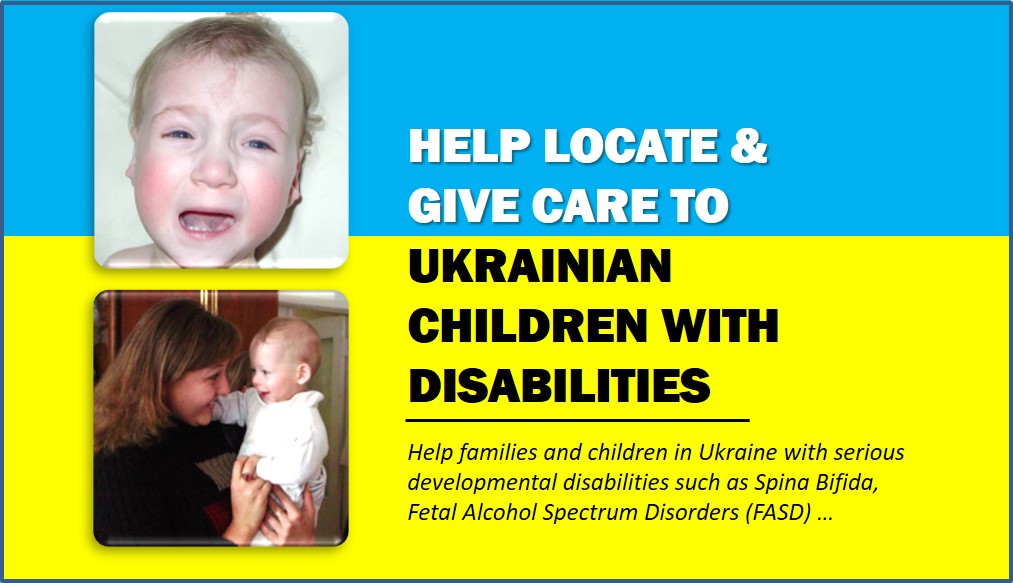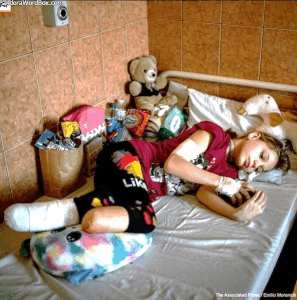On May 11, 2018, the seminar “Fetal Alcohol Syndrome (FAS): Diagnosis, Neuro-Behavioral Aspects, Correction Programs” was held at the Victor Polishchuk Rivne Regional Clinical Diagnostic Center (RRCDC). It was held for employees of centers for social services for children, families and youth. A mother-tutor of a family-type orphanage and a foster mother also took part in the seminar. The organizers of the event were RRCDC, Rivne City Center for Social Services for Children, Family and Youth of the Rivne City Executive Committee, the “OMNI-Net for Children” International Charitable Foundation, and the NGO “Rivne OMNI-Center for the Development of Children”.
The participants of the seminar were greeted by the RRCDC Chief Doctor R. Shustyk, the RRCDC Deputy Chief Doctor I. Shumlyansky, Director of Rivne City Center for Social Services for Children, Family and Youth of Rivne City Executive Committee L. Talt.
The head of the Regional Medical Genetic Center L. Yevtushok told about birth defects in the Rivne region and ways of their prevention. Reliable birth defects data collected in accordance with the international standards plays an important role in planning and conducting preventive activities and assessing their effectiveness. It is clear that the birth defects prevention cannot be carried out only through medical programs, since this task is complex and requires joint and coordinated activities of many departments and governmental agencies, public organizations, etc. Fetal Alcohol Syndrome (FAS) is the most severe consequence of the prenatal effects of alcohol, which manifests in the characteristic features of the face, delayed physical development, and disorders of the central nervous system development. The FAS rate among children in the USA is 0.5-2 instances per 1000 newborns, in Ukraine – 0.5-0.6 per 1000 newborns. FAS is a birth defect that can be 100% prevented only by refusing to drink alcohol during pregnancy.
The RRCDC practical psychologist I. Hranovska spoke about FAS diagnosis, neuro-behavioral aspects, and correction programs. She stressed that the child’s brain is the most sensitive to prenatal effects of alcohol. The destructive effect of alcohol on the fetal brain leads to neurological disorders manifesting as a delay in mental development, behavioral and emotional abnormalities. Subsequently, such children are not able to fully comprehend the educational material of a typical educational program. Children with FAS require studying using special methods, in particular, for the mastery of mathematical skills. Social adaptation is a major problem for them.
Due to the international cooperation, there have been translated and adapted in the Ukrainian language special correction programs, which help children with Fetal Alcohol Spectrum Disorders (FASD) to acquire mathematical skills (MILE program), as well as domestic and social skills (GoFAR program). Developers of these programs are scientists of the FAS Center at the Emory School of Medicine Marcus Autism Center (Atlanta, Georgia, USA) under the guidance of Claire D. Coles, Julie A. Kable, and Elles Taddeo. The translation and adaptation of the MILE and GoFAR programs was carried out with facilitation of the “OMNI-Net for Children” International Charitable Foundation, the NGO “Rivne OMNI-Center for the Development of Children”, and the NGO “Khmelnytsky OMNI-Center for the Development of Children”.
The seminar participants watched the “The Child for Life” video, created by the British National Organisation for Foetal Alcohol Syndrome-UK (NOFAS-UK), translated and kindly provided by the Ukraine Works Ltd (Director Anne Linden).
During the discussion, the participants of the seminar exchanged views on the need for active educational work among the general public regarding FAS prevention, early diagnosis, and correction of abnormalities caused by FAS.







